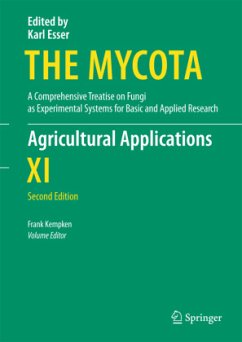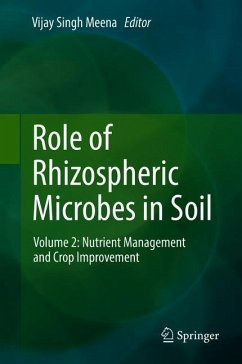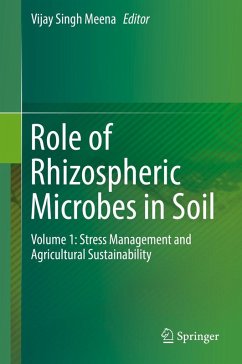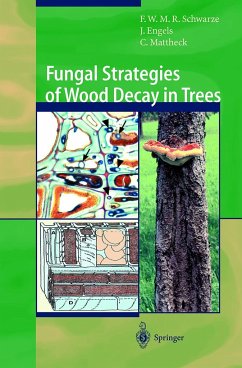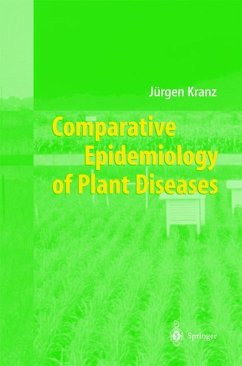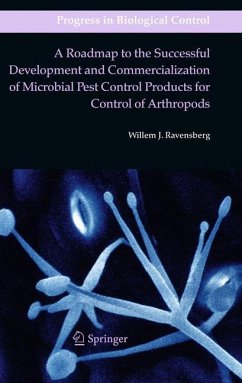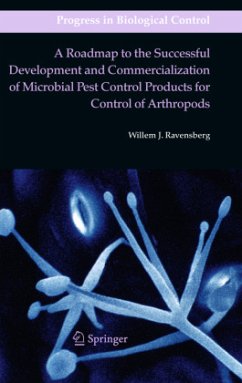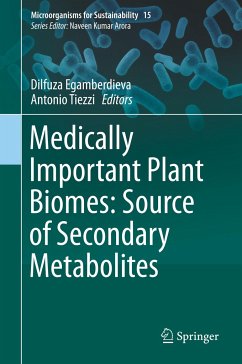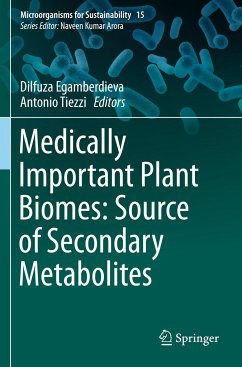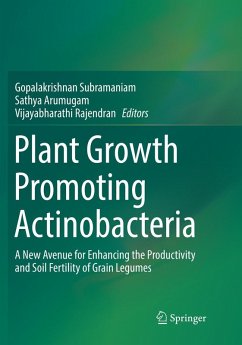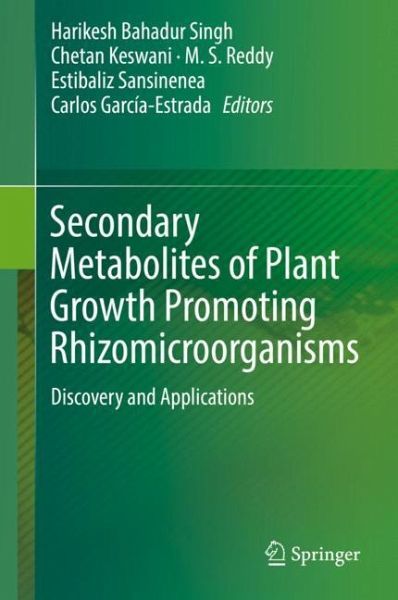
Secondary Metabolites of Plant Growth Promoting Rhizomicroorganisms
Discovery and Applications
Herausgegeben: Singh, Harikesh Bahadur; Keswani, Chetan; Reddy, M. S.; Sansinenea, Estibaliz; García-Estrada, Carlos

PAYBACK Punkte
38 °P sammeln!
Recent changes in the pattern of agricultural practices from use of hazardous pesticides to natural (organic) cultivation has brought into focus the use of agriculturally important microorganisms for carrying out analogous functions. The reputation of plant growth promoting rhizomicroorganisms (PGPRs) is due to their antagonistic mechanisms against most of the fungal and bacterial phytopathogens. The biocontrol potential of agriculturally important microorganisms is mostly attributed to their bioactive secondary metabolites. However, low shelf life of many potential agriculturally important mi...
Recent changes in the pattern of agricultural practices from use of hazardous pesticides to natural (organic) cultivation has brought into focus the use of agriculturally important microorganisms for carrying out analogous functions. The reputation of plant growth promoting rhizomicroorganisms (PGPRs) is due to their antagonistic mechanisms against most of the fungal and bacterial phytopathogens. The biocontrol potential of agriculturally important microorganisms is mostly attributed to their bioactive secondary metabolites. However, low shelf life of many potential agriculturally important microorganisms impairs their use in agriculture and adoption by farmers. The focal theme of this book is to highlight the potential of employing biosynthesized secondary metabolites (SMs) from agriculturally important microorganisms for management of notorious phytopathogens, as a substitute of the currently available whole organism formulations and also as alternatives to hazardous synthetic pesticides. Accordingly, we have incorporated a comprehensive rundown of sections which particularly examine the SMs synthesized, secreted and induced by various agriculturally important microorganisms and their applications in agriculture.
Section 1 includes discussion on biosynthesized antimicrobial secondary metabolites from fungal biocontrol agents. This section will cover the various issues such as development of formulation of secondary metabolites, genomic basis of metabolic diversity, metabolomic profiling of fungal biocontrol agents, novel classes of antimicrobial peptides. The section 1 will also cover the role of these secondary metabolites in antagonist-host interaction and application of biosynthesized antimicrobial secondary metabolites for management of plant diseases.
Section 2 will discuss the biosynthesized secondary metabolites from bacterial PGPRs, strain dependent effects on plant metabolome profile, bio-prospecting various isolates of bacterial PGPRs for potential secondary metabolites and non-target effects of PGPR on microbial community structure and functions.
Section 3 encompasses synthesis of antimicrobial secondary metabolites from beneficial endophytes, bio-prospecting medicinal and aromatic hosts and effect of endophytic SMs on plants under biotic and biotic stress conditions.
Section 1 includes discussion on biosynthesized antimicrobial secondary metabolites from fungal biocontrol agents. This section will cover the various issues such as development of formulation of secondary metabolites, genomic basis of metabolic diversity, metabolomic profiling of fungal biocontrol agents, novel classes of antimicrobial peptides. The section 1 will also cover the role of these secondary metabolites in antagonist-host interaction and application of biosynthesized antimicrobial secondary metabolites for management of plant diseases.
Section 2 will discuss the biosynthesized secondary metabolites from bacterial PGPRs, strain dependent effects on plant metabolome profile, bio-prospecting various isolates of bacterial PGPRs for potential secondary metabolites and non-target effects of PGPR on microbial community structure and functions.
Section 3 encompasses synthesis of antimicrobial secondary metabolites from beneficial endophytes, bio-prospecting medicinal and aromatic hosts and effect of endophytic SMs on plants under biotic and biotic stress conditions.





